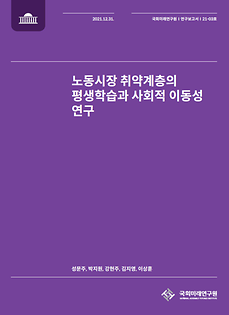
The rapid changes in the labor market caused by technology advancement are expected to have a great impact on underprivileged workers who are not highly educated or skilled. For this reason, lifelong learning is necessary for those workers to continuously develop their knowledge and skills in order to deal with changes in the future labor market and improve the social mobility of their social class.
The purpose of this study was to understand how and why the lifelong learning experiences of the underprivileged in the labor market have had an influence, or not, on their social mobility. This study specifically explored the motivations of the underprivileged to participate in lifelong learning programs, as well as their perceptions of opportunities and access to the programs. This study further explored how the underprivileged perceive the effects of lifelong learning in terms of changes in human, psychological, and social capital, and how those effects contribute to improving their social mobility.
To accomplish the purpose, this study conducted five focus group interviews with 19 workers and one-to-one interviews with seven workers from underprivileged groups in the labor market. The results of this study showed that the underprivileged who participated in lifelong learning programs have, to some extent, experienced changes in human, psychological, and social capital, and those changes contributed to entering labor market or promoting their employability. However, the effectiveness of lifelong learning programs on social mobility was shown to vary according to the social contexts in which the workers were placed, the types of learning programs and curricula offered, and the workers’ motivations to learn and overall learning strategies.
This study provides implications for lifelong learning policies that are aimed toward underprivileged workers. Various strategies need to be planned and implemented to improve underprivileged workers’ physical and psychological access to lifelong learning in formal and non-formal educational contexts. As positive experiences in lifelong learning can lead to continuous efforts to learn, comprehensive learning supports need to be provided for underprivileged workers, so that they can experience changes in their work and lives as a result of their participation in lifelong learning. Also, policies need to be established and implemented to integrate lifelong learning and career development programs for disadvantaged workers. In addition, certification systems and recognition of prior learning needs to be advanced and sophisticated in a way to be highly reliable and easily utilized in the labor market and formal education system.